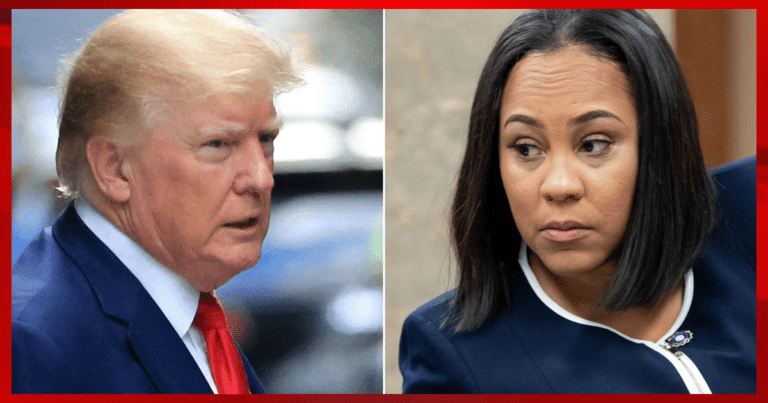
The political landscape of Georgia is currently undergoing a seismic shift, one that could have profound implications for key players in the state’s judicial system. At the epicenter of this political earthquake is Fani Willis, the Democrat district attorney who recently made waves by charging former President Donald Trump with conspiracy related to the 2020 Election results. However, as the aftershocks of her decision continue to reverberate, a new challenge looms on the horizon that could threaten the very foundation of her career.
Earlier this year, in a move that many saw as a game-changer, Georgia’s Governor Brian Kemp sanctioned the creation of the Prosecuting Attorneys Qualifications Commission. This formidable body, vested with significant authority, is tasked with the responsibility of examining the actions and motivations of district attorneys and prosecutors. Their overarching mission is to ensure that the pursuit of justice remains untainted by personal ambitions or political motivations.
With the Commission now fully operational, the legal community is rife with anticipation. There’s a palpable sense that Willis’s headline-grabbing case against Trump might be one of the first to come under the panel’s scrutiny. If the Commission determines that her actions were driven more by political maneuvering than by legal necessity, Willis could find herself facing not just professional censure but potential removal from her esteemed position.
Governor Kemp’s rationale behind the establishment of this panel was clear-cut. He envisioned it as a tool to ensure that “far-left prosecutors” are held accountable for their actions, especially if those actions compromise the safety and well-being of the communities they serve. This becomes especially relevant given the current dynamics in Fulton County, where Willis serves.
Residents of Fulton County have been grappling with a myriad of challenges, with escalating crime rates being a primary concern. Their frustrations have reached such a crescendo that some are even contemplating radical measures, such as seeking to move their neighborhoods out of the county’s jurisdiction. They hope that by aligning with areas that prioritize law and order, they might find a more secure environment.
Against this backdrop, Willis’s decision to charge Trump raises a plethora of questions. Is she genuinely championing the cause of justice, ensuring that even the most powerful are held accountable? Or is this a calculated move, designed to catapult her into the national spotlight and further her political aspirations? These questions are not just academic; they could very well determine the trajectory of her career in the near future.
In the intricate dance of politics and justice, the stakes are incredibly high. For Willis, her charge against Trump has undoubtedly placed her in the national and international limelight. But with the shadow of the Prosecuting Attorneys Qualifications Commission looming large, she might find that this attention comes at a steep price.
In conclusion, as Georgia’s political and legal landscape undergoes this transformative phase, the actions and decisions of its legal professionals, especially those in high offices like Fani Willis, will be under intense scrutiny. The newly formed panel is not just a testament to the demand for accountability but also a reminder that the pursuit of justice should be devoid of personal or political biases. As Willis navigates this challenging terrain, the coming weeks and months will reveal if her pursuit of Trump was a legal necessity or a political gambit. And the outcome of this will undoubtedly shape her legacy and future in Georgia’s legal annals.
Source The patriot journal
